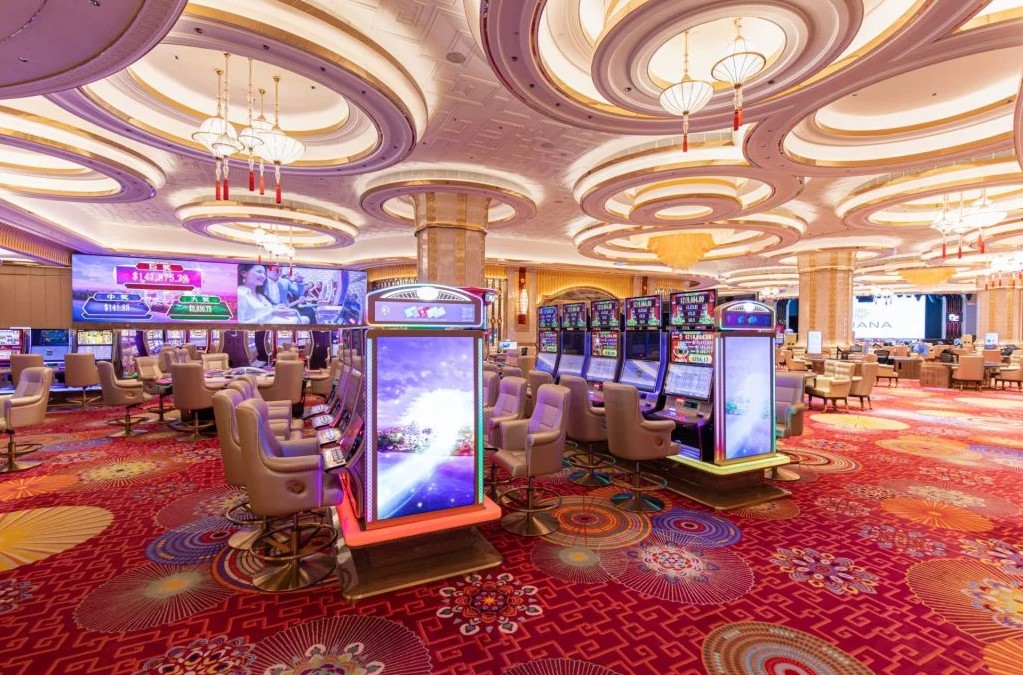Casino: Vietnam has emerged as one of Southeast Asia’s most interesting gaming markets in recent years. With a growing economy, increased tourism, and a shift in regulatory policies, the number of casinos in the country has been slowly rising. While Vietnam does not yet compete with global giants like Macau or Las Vegas, it is carving out its niche, particularly through integrated resorts and international investments.
Table of Contents
Overview of the this Industry in Vietnam
Vietnam’s approach to gambling has traditionally been conservative. For many years, casinos were only accessible to foreign passport holders. However, recent regulatory changes have allowed a limited number of locals to gamble under a pilot scheme, opening new doors for the industry.
As of 2025, there are approximately 9 operational licensed casinos across the country, alongside a few others in the pipeline or under development.
List of Major Casino in Vietnam (as of 2025)
| Casino Name | Location | Year Opened | Estimated Investment | Locals Allowed? |
|---|---|---|---|---|
| The Grand Ho Tram Strip | Ba Ria–Vung Tau | 2013 | $4.2 billion | Yes (pilot) |
| Corona Resort & Casino | Phu Quoc Island | 2019 | $2.1 billion | Yes (pilot) |
| Casino at Furama Resort | Da Nang | 2000 | $100 million | No |
| Crown International Club | Da Nang | 2009 | $250 million | No |
| Aristo International Hotel | Lao Cai | 2014 | $300 million | No |
| Royal International Casino | Ha Long Bay | 2003 | $71 million | No |
| Nam Hoi An Casino | Quang Nam | 2021 | $4 billion (phases) | Yes (pilot) |
| Silver Shores Casino | Da Nang | 2010 | $160 million | No |
| Do Son Casino | Hai Phong | 1995 | $10 million | No |
Regulatory Background
Vietnamese gambling laws were historically strict. All forms of gambling were prohibited for citizens, with the government emphasizing social order and economic stability. However, under Decree 03/2017/ND-CP, the government allowed Vietnamese citizens to enter select casinos if they met certain conditions:
- Monthly income of at least 10 million VND (~$430)
- No criminal record or gambling addiction
- Must be 21 years or older
This new framework has significantly affected the growth and structure of Vietnam’s casino industry.
Regulations in Vietnam vs Neighboring Countries
| Country | Locals Allowed to Gamble? | Government Regulation Strictness | Foreign Investment Friendly? |
|---|---|---|---|
| Vietnam | Limited (pilot program) | High | Moderate to High |
| Cambodia | No (in practice, locals banned) | Low | High |
| Singapore | Yes (entry levy applies) | High | High |
| Malaysia | No | High | Moderate |
| Philippines | Yes | Moderate | High |
Economic Impact
The industry in Vietnam contributes significantly to local economies through tourism, employment, and foreign investment. For instance, the Corona Resort on Phu Quoc Island employs over 2,000 workers and has boosted tourism to the region substantially since it opened.
Key economic benefits include:
- Job creation in hospitality, security, maintenance, and administration.
- Increased tourism, especially from China, South Korea, and Russia.
- Infrastructure development, including roads, airports, and hotels.
- Tax revenue from corporate profits and indirect spending.
Challenges Facing the Industry
Despite its potential, Vietnam’s gaming sector also faces notable challenges:
- Regulatory ambiguity: Licensing and compliance processes can be complex and lack transparency.
- Local restrictions: The pilot program for allowing Vietnamese to gamble is limited to a few casinos and is set for review.
- Illegal gambling: Underground betting remains widespread, which undercuts the legal casino market.
- Competition from neighboring countries: Especially Cambodia, where more relaxed laws attract cross-border gamblers.
Vietnam’s government appears cautious but open to expanding the casino sector. If the pilot program proves successful, more casinos may be allowed to admit local players in the future. This would dramatically change the dynamics of the industry.
Several new projects are also in development or awaiting approval. For example:
- A $2 billion casino in Van Don Economic Zone (Quang Ninh Province)
- Expanded phases of the Hoiana Resort & Golf in Quang Nam
- Potential new developments tied to tourism initiatives in Da Lat and Khanh Hoa
Upcoming or Proposed Projects
| Project Name | Location | Estimated Cost | Status |
|---|---|---|---|
| Van Don Casino Project | Quang Ninh | $2 billion | Under planning |
| Hoiana Phase II | Quang Nam | $1 billion | Under construction |
| Nha Trang Casino Resort | Khanh Hoa | $500 million | Proposal stage |
As of 2025, Vietnam has 9 operational licensed casinos, with several others in the pipeline. The government’s cautious approach—through pilot programs and strict regulations—demonstrates a desire to balance social concerns with economic growth. The future of the casino industry in Vietnam hinges on the outcomes of these pilot programs and how effectively authorities manage growth, regulation, and public interest.
Vietnam may not yet be the gambling hub of Asia, but it’s certainly laying the foundation for a more prominent role in the regional gaming market.

